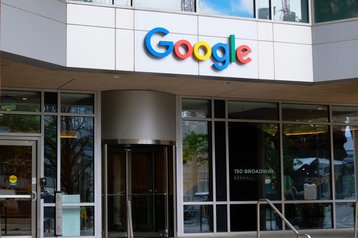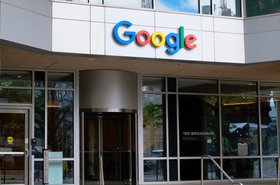AI startup Safe Superintelligence (SSI) has said it will be using Google Cloud’s TPUs to power its research.
In addition, UK financial services company Lloyds has expanded its use of Google Cloud’s services, as well as other customer stories.
Startups adopt TPUs
SSI, founded by OpenAI’s co-founder and former chief scientist Ilya Sutskever, is among the start-ups using Google Cloud for its AI research.
Announced in a blog post on Wednesday in the midst of the Google Cloud Next 2025 event, the start-up will be using Google’s self-developed TPU chips to “accelerate its research and development efforts toward building a safe, superintelligent AI.”
That blog post also noted that music generation start-up Udio is using the TPUs to train its models and serve its growing customer base.
According to a report from TechCrunch, citing a source familiar with the matter, Google Cloud is SSI’s primary computing provider. It is unknown if the company has partnerships with other cloud or computing providers, and SSI did not respond to TechCrunch’s request for comment.
SSI emerged in June 2024, a few months after Sutskever left Open AI. The company thus far has $1 billion in backing from investors, including Andreessen Horowitz, Sequoia Capital, DST Global, and SV Angel.
While known for his part in founding OpenAI, Sutskever worked at Google Brain prior to that, researching neural networks. He was a member of the board at OpenAI that briefly fired CEO Sam Alman. A Twitter (now known as X) timeline suggested that Sutskever was the one who directly fired Altman during a Google Meet with the board.
Altman later rejoined OpenAI, and Sutskever was part of the employee movement backing that decision.
Google revealed the newest generation of its TPU chips earlier this week. Dubbed Ironwood, the seventh-generation TPU is designed specifically for inference, and each individual chip boasts a peak compute of 4,614 teraflops and, when scaled to 9,216 chips, each pod totals 42.5 exaflops.
Other customer updates
The Google Cloud Next 2025 conference has also seen several other customer stories highlighted, including Lloyds Banking Group.
UK bank Lloyds has migrated 15 modeling systems, comprising hundreds of individual models, to Google Cloud from the bank’s on-premise infrastructure. According to the company, it has been able to say 27 Co2 tonnes of operational emissions.
Thus far, Lloyds has developed more than 80 ML use cases and launched 18 generative AI systems. A further 12 gen AI systems will go live by June 2025.
Tara Brady, president of EMEA at Google Cloud, said: “With Google Cloud’s Vertex AI platform, Lloyds Banking Group can deploy powerful machine learning models faster so that it can action transaction insights more quickly. This partnership demonstrates how cloud-powered AI innovation can drive unique, personalized experiences, bringing the bank even closer to its customers.”
Lloyds is also a customer of Oracle, having signed a multi-year agreement with the company in March of this year. During an Oracle event, the bank’s director of cloud platform, Steven Jeffrey, said that the group is undergoing a cloud migration effort and has relationships with Oracle, Microsoft, and “another hyperscale service provider.” Thus far, the company has seen 50 percent of its on-premise estate “cleared up,” with the company consolidating its data centers and now establishing a private cloud.
Other companies that have announced partnerships with Google Cloud to use its AI offerings during the Google Cloud Next 2025 conference include Freshfields, Manipal Hospitals, Mattel, Papa John’s, Reddit, Verizon, and Samsung, among others.
Also revealed during the event were the details of Canadian telco Telus’s migration journey to Google Cloud.
Head of enterprise data engineering at Telus, Stephen Lee, said that the migration journey took three and a half years to complete, and the company now has a “unified enterprise data hub” that can ingest data from over 100 internal systems, storing 13 to 14 petabytes of structured customer data.
As reported by Techcouver, Telus was able to identify 30 percent of its on-prem data sets as obsolete and, therefore, did not move those to the cloud. Lee claimed that the telco’s cloud migration supposed an EPITDA contribution target of $150 million for 2024.
Read the orginal article: https://www.datacenterdynamics.com/en/news/ai-startup-safe-superintelligence-to-use-googles-tpu-chips-for-research/









